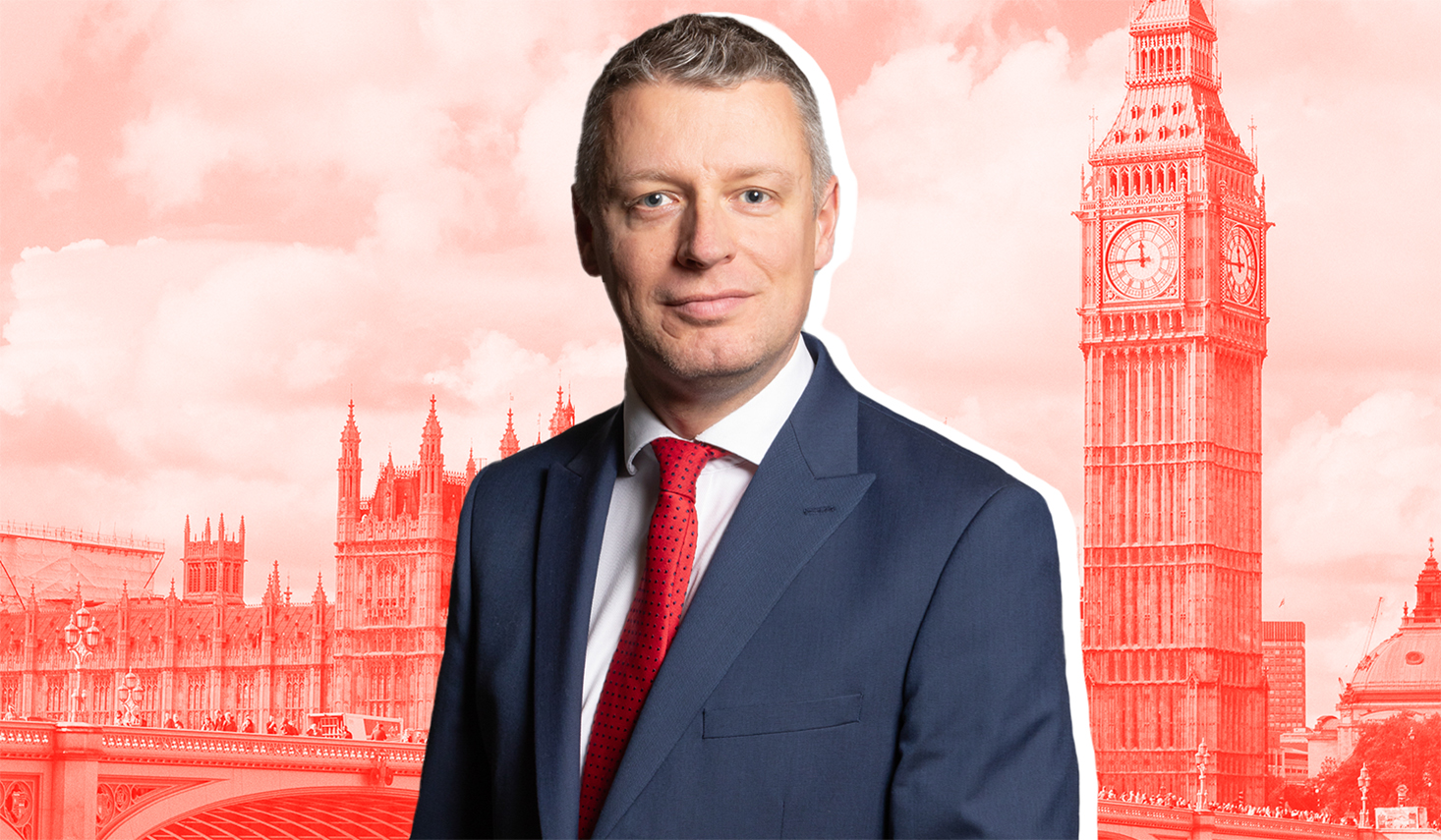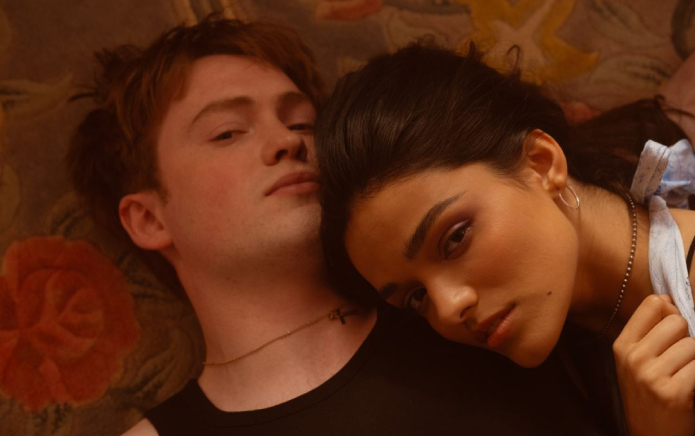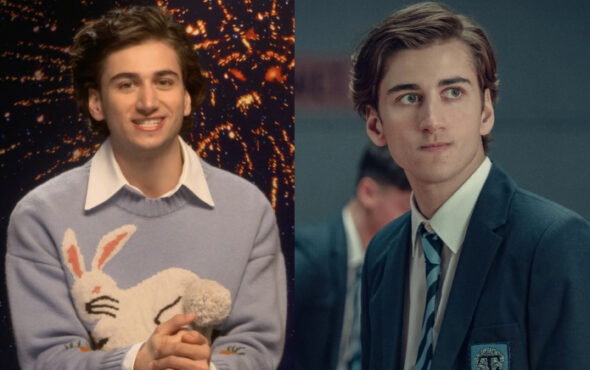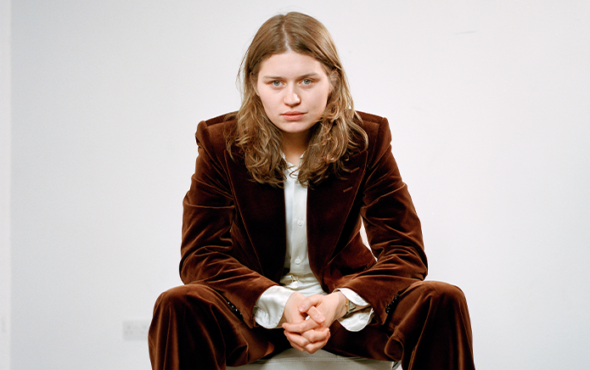
“I think if you’re in the public eye, you have, I think, a responsibility to model the behaviour you want to see in the rest of society,” says Luke Pollard, the Member of Parliament for Plymouth Sutton and Devonport, “and I think, because I’m the first out MP in Plymouth, it gives you extra responsibility to stand up for stuff.” He tells GAY TIMES that “there’s a real moment of power” in deciding to try to change the world around you instead of waiting for someone else to. “And so for the work I’m doing through the platform and the privilege that I have as an MP to better call things out, I know it does make a difference,” he adds.
A member of the Labour and Co-operative parties, Pollard was elected in 2017 and has since become the Shadow Minister for the Armed Forces – a far cry from his work on a televised children’s puppet show. He has frequently used his platform as an MP to speak about his own identity as an openly gay man and his hopes to see LGBTQ+ rights advanced in the UK. “It is incredibly frustrating when you’re in opposition and you’re seeing bad decisions made,” he says of working in the shadow government. “I think especially over the last five years, there’s been decisions made that I disagree with, and there’s been decisions made that are just rubbish, they’re kind of like, you know, accidentally bad things [that] have happened – not because of some dark arts plan, just because they haven’t looked at it properly.”
This year marks the 50th anniversary of the UK’s first-ever LGBTQ+ Pride, which Pollard believes “is a moment to take stock of just how far we’ve come and how fast we’ve come.” Growing up under Section 28, the laws which effectively censored a number of LGBTQ+ issues in the UK, he explains that the idea of being able to hold another man’s hand in public – let alone marry them – used to be a “far off” idea. “And what we need to do next is, I think, find strength in the progress that we’ve made,” Pollard further states. “And we need to recognise that to get that equality locked in, to get it so it is a permanent fixture of our politics, of our society, of our country, so nobody can change in the future, we have to protect not only our rights, but fight for those others beside us, because the forces of hate are swelling again. They are definitely coming and they’re coming for us.”
Liz Truss, the former Foreign Secretary and Equalities Minister, became Prime Minister at the start of the month – ushering in the country’s next era and government as she did so. Thérèse Coffey, who she has appointed her deputy and the new Health Secretary, voted against same-sex marriage in 2013 and extending marriage equality to Northern Ireland in 2019 – something which left many LGBTQ+ people and organisations concerned after her appointment. “For my entire adult life, I’ve seen people in positions of responsibility who don’t want me to exist and I think to a certain extent, the LGBTQ+ community, myself included, has normalised that as just the way the world is,” Pollard, who recently got engaged to his longtime boyfriend, says when asked how this makes him feel. “There are people that don’t think you should exist.” He adds that “when you legitimise and promote people with somewhat difficult views, you give them a platform and you give them a legitimacy so they don’t necessarily have to say the words, but their promotion creates a space for others to follow in behind”.
Some personal news from Sydney and me:
I said yes!
I’m over the moon that my lovely boyfriend asked me to marry him. And I’ve said yes.
It’s been a wonderful six years together so far and we are really excited about the next chapter together. pic.twitter.com/9AhRXZHGkj
— Luke Pollard MP (@LukePollard) September 23, 2022
Pollard says he is “quite fearful of what is in store for us” under Truss’ government and how the views of those within it could shape policy in the near future. He points to the recent overturning of Roe v. Wade in the United States, which saw women instantly lose the right to an abortion in several states, as an example of how “rollback takes a variety of forms.” He continues: “But we need to be ready for that rollback, because the rollback of rights that we will see will not come in a 1930 style with a military jackboot. It won’t come with a fascist coming over the hill. It will come in people with plain English, polite conversations, the kind of person that you might invite in for tea or vote for and that changes things a lot, so what we have to do is make sure that there are no U-turns ahead, that we are absolutely determined to stand with other groups that are facing abuse, to not allow them to split us.”
The Labour Party currently holds a 33-point lead over the Conservatives, according to a YouGov poll on 29 September. It marks the highest figure the Party has recorded in any published survey since the late 1990s and, if replicated in a general election, would be the worst result the Tories have ever seen. “Liz Truss is the new Prime Minister, but there’s a general election coming,” says Pollard. “It might be a few weeks away, it might be a few years away, but it is coming and in marginal seats up and down the country, the LGBTQ+ vote will decide whether we have a Labour MP or a Conservative MP in those seats.”
Our latest VI poll has Labour with a *33pt* lead over the Tories, the highest of any recorded poll since the late 1990s. (Fieldwork 28-29 Sep)
Con: 21% (-7 from 23-25 Sep)
Lab: 54% (+9)
Lib Dem: 7% (-2)
Green: 6% (-1)
Reform UK: 4% (+1)
SNP: 5% (+1)https://t.co/qjE87FPC0i pic.twitter.com/ddQLH2tixo— YouGov (@YouGov) September 29, 2022
“I think a lot of people look down on Liz Truss’s statements over the years to see what she’s going to be like,” Pollard adds. “You know, she might have been the Equalities Minister that dropped GRA reforms, she might have been the Equalities Minister that allowed trans people to be taken out of a ‘conversion therapy’ ban, she might’ve been the Equalities Minister did not bring forward the ‘conversion therapy’ ban and I think in that case, we are looking for reasons to think it’s going to be okay.”
The aforementioned ‘conversion therapy’ is typically defined as any attempt at changing or suppressing a person’s sexuality or gender identity, often involving techniques such as electroshock ‘therapy’ or prayer. It has been widely condemned by health experts and bodies all over the world, including the National Health Service and the World Health Organisation, with some comparing it to torture. A commitment to banning the practice was first made by Theresa May’s administration in 2018 and was one of Truss’ flagship policies as Minister for Equalities, though one is yet to be implemented in the UK. It returned to the spotlight earlier this year when Boris Johnson’s government made a number of U-turns on restricting it, resulting in a heavily watered down version of what was originally promised. Current plans would see trans and non-binary offered little to no protections and adults able to ‘consent’ to it, with under-18s being the only group to get the full ban promised by the government.
Pollard states that not banning the practice has “become a tool which they can throw to the right wing, throw to the bigots, and seek to divide people further with and that’s why we haven’t seen legislation.” He believes that if the government introduced a ban that did not protect all LGBTQ+ people, “they would lose the vote in the House of Commons.” Pollard continues: “Now, ‘conversion therapy’ is cruel and abhorrent and the most stupid thing about it is if you exclude trans people from a ban on ‘conversion therapy’, ‘conversion therapy’ will still exist for everyone because the folks that are using electroshock therapy on people, or the aggressive prayer that is so humiliating, well, they’ll just accuse folks of being trans to be able to get away with it. And so this is a perfect example of how we are not free until we are all free.”
In today’s debate on conversion therapy I made the case for a trans and non-binary inclusive ban on conversion therapy. #ConversionTherapy is cruel and abhorrent. We should not divide LGBT people between those worthy of protection and those not. We need equality & inclusivity. 🧵 pic.twitter.com/bjxTfcrz53
— Luke Pollard MP (@LukePollard) June 13, 2022
Much of the discussion surrounding the rights of trans people, be it in the context of ‘conversion therapy’ or more generally, is framed as a so-called ‘culture war’ between those with differing beliefs in Britain. Pollard says “the goal of a culture war is to divide” and “break a unity of the left,” adding: “It energises people with hate that can attack, attack, attack. It distracts from issues that might otherwise be getting more attention: NHS waiting lists, businesses going under, people, you know, unable to afford to turn their heating on. And it allows people to, well it allows a very small minority of people, to effectively profit from their hate, from the suffering of others. Now, the problem with a culture war, as abhorrent as it is, [is that] it’s politically very effective. And it not only captures media coverage, it captures political debates, it allows decent people to question the limits of what their beliefs look like.”
Pollard explains that those “perpetrating a culture war” are often coming from an angle “that says there’s a minority and we are quite happy continuing and exacerbating their suffering because we hope there’s some votes in it.” He also states that although “there can be votes in it,” this is only when “we allow it to happen” as the vast majority of the voting public support LGBTQ+ equality. In fact, a Pew Research Center poll in 2019 found that 86% of the UK agreed that homosexuality should be accepted by society, with other data showing similar trends. Despite this being the case, Pollard highlights that this does not mean the fight for equality is over: “But the truth is, our rights have always been under attack and so that’s where visibility, that’s where decency, that’s where positivity are the weapons that we need to be carrying with us because the way you win an equality campaign and the way we win the equality fight, it’s not like in military conflicts. We do not destroy our enemies. They’re not going to be killed or murdered. We win by turning their views, by converting them, by persuading them to go down a better path.”
The Church of England does not permit same-sex marriage – according to YouGov Profiles 66% of Britons support allowing same-sex partners to wed, as do 57% of those who identify as CofE themselves
— YouGov (@YouGov) January 23, 2020
In 2000, Labour lifted the ban on LGBTQ+ personnel serving in the military. Things have come a long way in the 22 years since then, with a review into the restrictions now underway in order to better understand the impact it had on LGBTQ+ veterans. Pollard welcomes the review and says there has been a “really good victory in getting the government to agree” or at least “recognise” that the treatment of these veterans is worthy of acknowledgement and apology. However, his shadow armed forces role means he is all too familiar with those who still “deserve justice” for how they were treated when serving and the toll this still takes on them today. “So, we do need the data and then we need to understand what is the redress and solution for this because, with each year that goes by, the reality is that we lose veterans and we need to make sure that there’s a line drawn under this and that means, in my mind, not only a proper apology, but it means compensation and it means redress and allowing veterans to properly wear their medals, their insignia, their company colours, to be a 100% valid, accepted, welcome and celebrated veteran.”
“Now, the government has taken steps in that direction,” Pollard adds, noting that LGBTQ+ veterans are able to wear their medals. However, he highlights that many are still in possession of written orders from their commanding officers which prevent them from doing that. “So because, when you’re in the military, you follow orders, those orders have not been rescinded,” he explains. “So until those orders are rescinded, they won’t be able to do that. So these are the bits that need to be captured in an overarching policy that seeks to get, finally, justice for people who were serving their country and were dismissed simply for being themselves.” When the review’s recommendations come forward, which is expected to happen around a year from now, Pollard’s main goal is ensuring they “meet the expectations of the veterans” affected. “And that will be, I’m afraid, an incredibly an incredible catalogue of shame for our country about how people were treated and how recently some of those people were treated,” he says, adding: “Because there’s lots of people for whom this is an awkward part of the past that would prefer it just didn’t appear, it just goes away somehow. But there are probably tens of thousands of LGBTQ+ veterans who have faced life changing moments of discrimination that deserve justice and they should get it.”
"That visibility has changed lives." 🏳️⚧️
At the UK Parliamentary debate on trans conversion therapy, Labour MP @LukePollard says that Heartstopper's trans representation is saving lives, @Yazdemand ❤️ pic.twitter.com/YkrMGXv1yO
— GAY TIMES (@gaytimes) June 13, 2022
Outside of his professional career, the Plymouth-born MP is an unapologetic fan of Netflix’s LGBTQ+ series Heartstopper. The show was met with critical acclaim as soon as the first season arrived on Netflix, with viewers watching 23,940,000 hours of it during its first full week on the platform alone. “When you boil it down, visibility matters and when you boil it down even more, people want to be able to see themselves represented on stage and screen and for so long, entire genres have existed without any LGBTQ+ people on screen in any form,” he says of why authentic representation matters. “And I think the thing that is most special about Heartstopper is it’s done it in such an uplifting and kind way…it’s more than just TV. And that’s the thing, you know, straight people get a lot of representation on screen and LGBTQ+ people tend not to and sometimes when they do, it can focus, I mean, we love our drama, but sometimes LGBTQ+ dramas can focus on some very dark subjects. That’s often because lived experience can be quite dark and this is just relentlessly hopeful and positive and uplifting and I think we have more of that actually at a time when hate is brewing. It’s the perfect antidote to that, isn’t it?”



